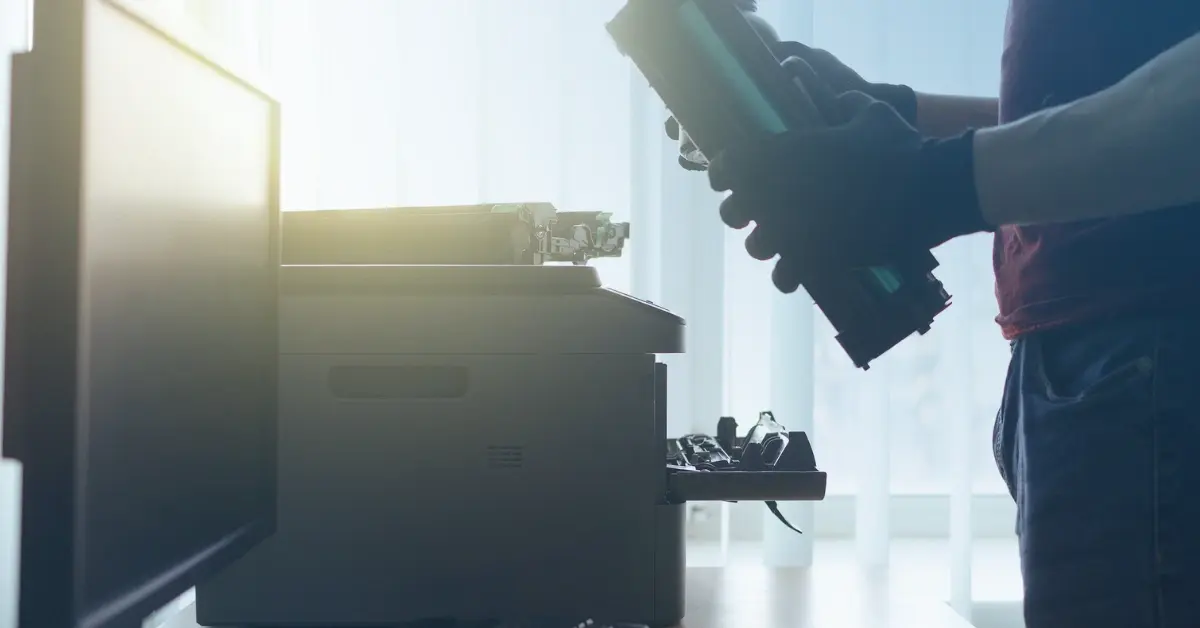How Governments Can Better Protect Our Data

Identity theft seems like it wouldn't be a pressing issue in 2024, but its is actually affecting millions of individuals and businesses worldwide. From data breaches to phishing scams, the risks are ever-present, underscoring the need for robust security measures to protect sensitive information.
Cyber Security, IT Outages, and Data Theft Issues In 2024
Just in the first half of 2024, there were two major cyber crimes and outages, one being the ransomware attack on Change Healthcare which saw the data of 1 in every 3 patients in the US get stolen and held at ransom.
The other being the CrowdStrike IT outage that occurred over the summer, which involved one single line of faulty code affecting 8.5 million Microsoft Windows devices, shutting down airlines, banks and business, and more.
One of the most alarming stories which washed over the news in just a few days was the USDoD attack, in which hackers claimed to have stolen the social security numbers of "every person with a social security number" according to Cliff Steinhauer, Director of information security and engagement at The National Cybersecurity Alliance, a nonprofit that promotes online safety.
The Growing Threat of Identity Theft
So what actually happened with the USDoD data breach?
In you're unfamiliar with the story, the breach reportedly took place in April 2024, but wasn't reported until August 2024. The hacker group known as USDoD allegedly stole unencrypted personal information of billions of individuals from National Public Data (NPD), a background check firm located in Florida, according to a lawsuit.
The hacker asserted that the stolen files contain 2.7 billion records, each including details such as a person's full name, address, date of birth, Social Security number, and phone number.
Cliff Steinhauer added that this breach was a reminder to citizens to protect themselves, "because clearly companies and the government aren't doing it for us."
But how would a government agency or an organization like National Public Data (NPD), protect the sensitive information better than they already are?
Digital & Physical Document Security
With how much sensitive data governments have on their constituents, it's important for them to not only protect digital records, but physical records as well. By "protect," we mean the whole nine yards. Encryption, watermarks, microprinting, secure barcodes, and more.
With all of these features, counterfeiting, alteration, or duplication becomes impossible. But implementing this many features is only possible with one solution, SecureDocs Sentry.
With SecureDocs Sentry, you gain a robust document security solution that prevents forgery, tampering, and duplication by layering multiple security features such as microprinting, TROYMark for data integrity, UV ghost images, serialization for tracking, and secure QR codes. Combined with TROY's UV Printers and Security Inks & Toners, SecureDocs Sentry creates an end-to-end solution to safeguard sensitive documents. This comprehensive approach ensures that governments can protect both digital and physical records, making counterfeiting virtually impossible.

Microprinting for fine, nearly invisible details
TROYMark watermark to secure data integrity
UV ghost images only visible under UV light
Serialization for tracking and verification
Secure QR codes to authenticate documents
Safeguard Data To Stay Prepared
As we navigate the complexities of 2024, the threat of identity theft remains a significant concern for individuals and organizations alike. Implementing strong security measures is essential to protect against the evolving tactics of cybercriminals.
TROY SecureDocs Sentry stands as a robust solution to safeguard your digital and physical documents. By prioritizing document security, user access control, and comprehensive auditing, SecureDocs Sentry empowers you to mitigate the risks of identity theft effectively. In a world where information is power, protecting your sensitive data is not just a necessity; it's a fundamental part of maintaining trust in your personal and professional relationships.
Related Posts

What is UV Printing? UV Curable Inks for Packaging
Ultraviolet, or UV printing is an advanced digital technology that cures specially designed inks using UV light. This process creates sleek, vibrant designs that dry instantly,..

Here's How to Beat Upcoming Postage Rate Increases
In 2024, a notable increase in postage costs became a reality. With postage increases expected to occur multiple times a year, it's important to be prepared for what's coming.

What is MICR Toner? A Guide for Check Printing
What is MICR? MICR stands for Magentic Ink Character Recognition, and it plays a critical role in check printing. If you're printing checks for your business, you should always be..



Leave a Reply